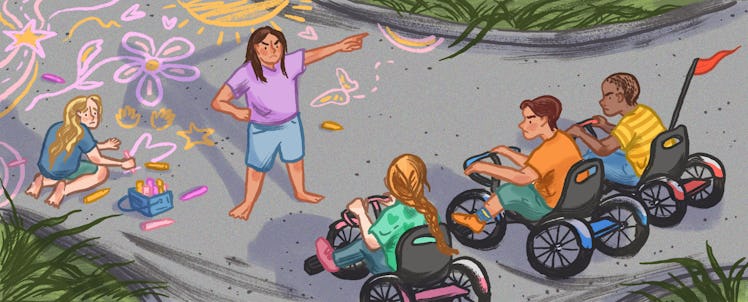Should Parents Want to Raise Nice Kids? Probably Not.
When I teach my daughter not to interrupt a conversation, I wonder how she’ll know to break that rule when she needs to shut down an obnoxious mansplainer.

There’s something to be said for nice children. But there’s also plenty to be said for not raising little doormats. When I teach my daughter not to interrupt a conversation, I wonder how she’ll know when to break that rule when she needs to shut down an obnoxious mansplainer. When I tell my son to share his cookies, I wonder: am I molding him into the sort of kid who gives away his lunch, his toys, his homework, to grade school bullies?
There are no easy answers. But scientists who study altruism have catalogued some of the advantages and disadvantages of kindness and, on the balance, it may be wise to raise children who are less “nice” than they are “prosocial”. Kindness, it turns out, is overrated. Getting along with others and contributing to a group is not.
Evolutionary biologists have long been fascinated and befuddled by altruism. Natural selection is all about ensuring the evolutionary fitness of the individual so we should, by all means, have evolved to interrupt conversations as an assertion of dominance and hoard cookies to protect our food stores. The working theory is that altruism can be, itself, an assertion of dominance. Helping others signals that you’re doing just fine, thank you very much; demonstrating that you can afford to give handouts proves your own dominance in a social structure. And since we’re flirting with Darwinism anyway, let’s drive the evolutionary point home: dominance in a social structure makes you attractive. Mates take notice and, a few dinner dates later, your genes live on.
Altruism is humanity’s very own mating call.
That’s one very strong reason to teach kindness to your children. Here are a few others: studies have linked altruistic behavior to personal wellbeing, higher life and relationship satisfaction, lower levels of depression, and lower mortality rates. That may be because people who help others get helped, and the world is rosier when we all get along. It may also be that we’re wired to act altruistically—mating calls and whatnot—and our bodies reward us for playing along. Either way, there’s a solid (albeit cynical) case to be made for raising children who share cookies.
But there are downsides, too. The most obvious drawback is that it’s only attractive to give away your cookies when you have cookies to spare. Kindness isn’t dangerous when the costs are low but, at some point, it becomes too socially (and financially) expensive to be kind. Teaching your children to help the poor is fine, in theory. Teaching them to welcome less fortunate strangers into their homes sounds even better—in theory. In practice, less so.
Long-term acts of subtle altruism can also be harmful. Burnout among those who work in altruistic professions—nurses, hospice caregivers—is particularly high, and supporting those who suffer comes with significant stress.
And then there’s the day-to-day acts of kindness. Not those big, socially costly shows of altruism like opening a homeless shelter in your living room, and not long-term subtle acts of altruism like caring for a dying relative. Attitude, for instance. Even maintaining a consistently happy-go-lucky attitude may not be as healthy as it seems.
“There’s mixed evidence. Expressing anger, which is central to vengeful behavior, has actually been shown to be associated with heart-related health risks in Western cultures, but the opposite trend has been shown in Asian cultures,” writes Juliet Wakefield a social psychologist who studies altruism at Nottingham Trent University. “There is also evidence that both feeling anger and suppressing it is bad for physical health, while anger suppression has been linked to depression and guilt. So the overall message (at least in terms of keeping yourself healthy in the West) is to avoid becoming angry – but to express the anger if you do.” Nice? Kind? Not quite.
So how can we raise children that are attractively altruistic, while also shielding them from the dangers, costs, and stresses of being the wrong kind of kind? The answer may be encouraging not kindness, but prosocial behaviors. They lead to a specific brand of altruism, which involves engaging in behaviors that benefit society as a whole. This doesn’t mean never being angry, but it means avoiding constant aggression — because an angry world is an unpleasant world. It means politely interjecting or waiting your turn before entering most civil conversations, but it also means interrupting those conversations that are destructive to society at large.
For me, it comes down to this: I want my children to share their cookies, but only when there’s a cookie surplus and it benefits society for them to hand a spare to a hungry buddy. I’ll take prosocial kids over nice ones any day — and I suspect evolution agrees.
This article was originally published on